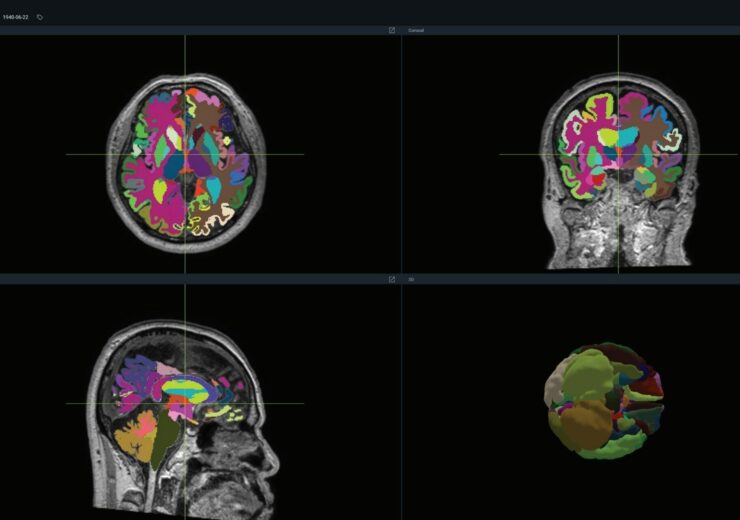VUNO Med-DeepBrain is designed to automate the existing manual process of detecting, labeling and quantifying segmentable brain structures from MRI images

The user interface of VUNO Med-DeepBrain. (Credit: PR Newswire/VUNO Inc.)
South Korea-based VUNO has secured the US Food and Drug Administration (FDA) 510(k) clearance for VUNO Med-DeepBrain, the company’s artificial intelligence (AI)-driven brain quantification device.
VUNO Med-DeepBrain is designed to automate the existing manual process of detecting, labelling, and quantifying segmentable brain structures from magnetic resonance imaging (MRI) images.
The AI programme offers volumetric data on more than 100 brain regions through brain and provides cortical thickness and white matter hyperintensity (WMH), said VUNO.
According to the medical AI company, the atrophy data of patients is presented using a normative percentile assessment and compared with data from a normal population.
This measurable brain data in the form of a customisable report can be delivered to clinicians which could be helpful in the treatment of dementia and other neurodegenerative illnesses.
VUNO CEO Yeha Lee said: “VUNO Med-DeepBrain marks the first FDA clearance from VUNO, and we expect it will be a stepping stone for VUNO’s expansion into the US market.
“With this product, we will make every effort to help improve the declining quality of life experienced by many dementia patients.”
Following the FDA clearance, VUNO plans to strengthen its marketing and sales efforts that target US medical institutions.
Additionally, the medical AI firm intends to strengthen its partnerships with global pharmaceutical companies looking for AI-based brain MRI quantification technologies.
VUNO has previously conducted clinical research to explore the potential of early Alzheimer’s disease diagnosis using data from VUNO Med-DeepBrain.
As per the data from the clinical research presented by the South Korean company, the brain quantification device showed potential in the prediction of amyloid positivity in patients undergoing subjective cognitive decline (SCD), which is one of the first and noticeable symptoms of Alzheimer’s disease and associated dementias.
The results revealed that the device can help identify and treat patients who may develop dementia even before reaching mild cognitive impairment (MCI) or early dementia.
